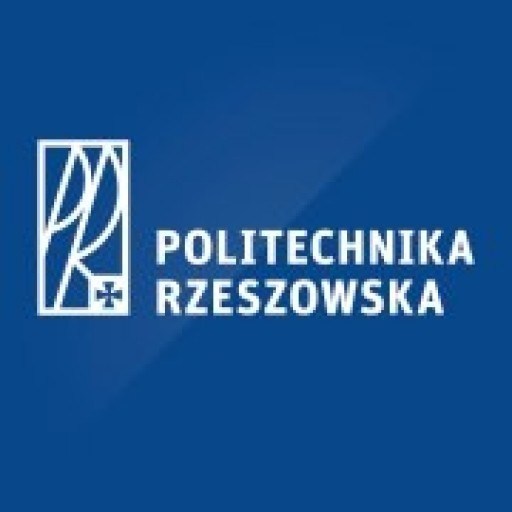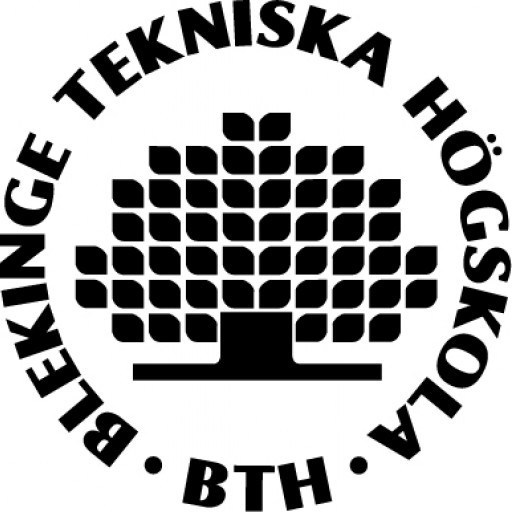Photos of university / #sydney_uni
The Bachelor of Engineering (Honours) in Telecommunications at The University of Sydney is a comprehensive undergraduate program designed to prepare students for a dynamic career in the rapidly evolving field of telecommunications technology. This program combines foundational engineering principles with specialized knowledge in telecommunications systems, network design, wireless communication, signal processing, and cybersecurity. Throughout the course, students will engage with cutting-edge topics including 5G networks, the Internet of Things (IoT), satellite communications, and optical fiber technologies, enabling them to contribute to innovations that underpin modern digital infrastructure.
The program's curriculum emphasizes hands-on learning through laboratory exercises, industry projects, and internships, fostering practical skills alongside theoretical understanding. Students will develop proficiency in analyzing communication systems, designing network solutions, and implementing secure and reliable data transmission methods. Emphasis on teamwork, problem-solving, and critical thinking prepares graduates to address complex challenges faced by organizations in telecommunications and related industries.
Research integration is a key component of the program, facilitated by access to state-of-the-art laboratories and collaboration with industry partners. The program also offers elective courses allowing students to specialize further in areas like wireless communications, network security, or signal processing technologies. Graduates of this program will be equipped to pursue careers in telecommunications infrastructure, network engineering, wireless communications, network security, and related fields, or to continue their studies through postgraduate research.
The University of Sydney's strong industry links, global reputation for research excellence, and dedicated support services ensure that students are well-prepared for the workforce. The Bachelor of Engineering (Honours) in Telecommunications aims to develop innovative, ethical, and adaptable engineers who can contribute to technological advancements that enhance connectivity and communication worldwide.
Year 1 - Semester 1
| SITS Diet Block/Type | CP | Unit of Study/Unit Block |
|
Core |
6 | ENGG5011: Engineering Foundation Studies A Note: ENGG5011 requires permission for enrolment. Students must consult academic advisor before applying for this unit. |
|
Core |
6 | COMP9129: Software Construction Note: If COMP9129 is unavailable, please select INFO9117 |
|
Core |
6 | ELEC9602: Digital Logic |
|
Core |
6 | ELEC9703: Fundamentals of Electrical and Electronic Engineering |
Note: Year One covers Foundation units only. Candidates with a prior Bachelor of Engineering degree or equivalent in the field related to this specialisation may be exempted from Foundation units.
Continuing students from 2014 or earlier please note: COMP9129, ELEC9602 and ELEC9703 replace previous 2014 units COMP5212 Software Contruction, ELEC5722 Foundations of Digital Systems Design and ELEC5710 Foundations of Electrical and Electronic Engineering.
Year 1 - Semester 2
| SITS Diet Block/Type | CP | Unit of Study/Unit Block |
|
Core |
6 | ELEC9103: Simulations & Numerical Solutions in Eng |
|
Core |
6 | ELEC9302: Signals and Systems |
|
Core |
6 | ELEC9601: Computer Systems |
|
Core |
6 | ELEC9704: Electronic Devices and Circuits |
Note: Year 1 covers foundation units only. Students with a prior Bachelor of Engineering degree or equivalent in the field related to this specialisation are exempt from these foundation units.
ELEC9103, ELEC9302, ELEC9601 and ELEC9704 replace previous 2014 units: ELEC5723 Foundations of Simulations & Numerical Solutions in Eng, ELEC5721 Foundations of Signals and Systems, ELEC5711 Foundations of Computer Systems, ELEC5720 Foundations of Electronic Devices & Basic Circuits.
Year 2 - Semester 1
| SITS Diet Block/Type | CP | Unit of Study/Unit Block |
|
Core |
6 | ENGG5202: Sustainable Design, Engineering & Management |
|
Core |
6 | ELEC9305: Digital Signal Processing |
|
Core |
6 | ELEC9505: Communications |
|
Core |
6 | ELEC9515: Digital Communication Systems |
Year 2 - Semester 2
| SITS Diet Block/Type | CP | Unit of Study/Unit Block |
|
Core |
6 | ELEC9506: Data Communications and the Internet |
|
Telecommunications Specialist Electives |
18 | Select from Telecommunications Specialist Electives |
Year 3 - Semester 1
| SITS Diet Block/Type | CP | Unit of Study/Unit Block |
|
Core |
6 | ELEC5020: Capstone Project A Note: See Streams/Majors for full details. Students achieving an average mark of 75% or higher over 48 credit points of units of study in the Year Two Table or equivalent are eligible for the Research Pathway and may replace ELEC5020 and 6cp of recommended electives with ELEC5222 Dissertation A. |
|
Core |
6 | ENGG5204: Engineering Professional Practice |
|
Core |
0 | ENGG5217: Practical Experience |
|
Telecommunications Specialist Electives |
6 | Telecommunications Specialist Electives |
|
Management Electives |
6 | Management Electives |
Year 3 - Semester 2
| SITS Diet Block/Type | CP | Unit of Study/Unit Block |
|
Core |
6 | ELEC5021: Capstone Project B Note: See Streams/Majors for full details. Students achieving an average mark of 75% or higher over 48 credit points of units of study in the Year Two Table or equivalent are eligible for the Research Pathway and may replace ELEC5021 and 6cp of recommended electives with ELEC5223 Dissertation B. |
|
Telecommunications Specialist Electives |
12 | Select from Telecommunications Specialist Electives |
|
Management Electives |
6 | Management Electives |
- IELTS: A minimum result of 7.0 overall and a minimum result of 6.0 in each band
- TOEFL paper-based: A minimum result of 592 overall including a minimum result of 4.5 in Writing TOEFL IBT: A minimum result of 96 overall including a minimum result of 17 in Reading, Listening and Speaking and 19 in Writing
- The equivalent of an Australian bachelor’s degree
The University of Sydney offers a comprehensive range of financial support options for students enrolled in its telecommunications programs. Domestic students have access to Australian government-funded financial aid schemes such as FEE-HELP, which assists eligible students in deferring tuition fees. Additionally, the university provides scholarships specifically targeted at students pursuing degrees in engineering and telecommunications disciplines. These scholarships may be merit-based, need-based, or targeted towards specific groups such as Indigenous Australians or students from regional areas.
International students enrolled in telecommunications programs are generally required to pay tuition fees upfront or through approved payment plans. While government assistance options are limited for international students, the university offers various scholarships and bursaries to support their studies. These awards are highly competitive and often require an outstanding academic record, leadership qualities, or a demonstrated commitment to the field of telecommunications.
Beyond scholarships, students may explore external funding options such as industry sponsorships, private scholarships, and venture grants. The university also provides access to financial counseling and advice through its Student Support Services, helping students navigate payment options, budgeting, and financial planning throughout their studies.
For students seeking part-time work, the university’s location in Sydney provides numerous employment opportunities in the tech and telecommunications sectors, which can help offset costs and gain practical experience. Visa regulations for international students often allow part-time employment during semester periods, subject to restrictions.
Overall, The University of Sydney aims to make its telecommunications programs accessible through a variety of financial assistance programs, ensuring students can focus on their studies without undue financial burden. Whether through government schemes, scholarships, or supplementary employment opportunities, students are supported in funding their education effectively.
The Bachelor of Engineering (Honours) in Telecommunications at The University of Sydney is a comprehensive program designed to equip students with in-depth knowledge and practical skills in the field of telecommunications engineering. This program emphasizes foundational principles in electrical engineering, data communications, network design, and modern telecommunications technology. Students will explore areas such as signal processing, wireless communication, optical communications, and internet systems, preparing them for work in the rapidly evolving communications industry. The curriculum combines theoretical coursework with hands-on experience, including laboratory work and industry projects, to develop critical problem-solving and innovative thinking abilities. Throughout their studies, students have access to state-of-the-art facilities and are encouraged to engage in research and development activities, often collaborating with industry partners to stay at the forefront of technological advancements. The program also covers essential professional skills, including project management, ethical considerations, and communication, ensuring graduates are well-rounded professionals ready for diverse roles in telecommunications companies, network providers, research institutions, and technology startups. With a strong focus on innovation and practical application, the degree aims to foster the capacity for graduates to contribute to the development of future communication systems, supporting the ever-expanding demand for faster, more reliable, and more secure telecommunications networks worldwide. Graduates from this program are well-positioned to pursue further postgraduate study or enter careers in areas such as network engineering, wireless systems, optical networks, data transmission, and telecommunication infrastructure development. The University of Sydney’s industry connections and emphasis on research excellence make it an ideal place for students interested in advancing their careers in telecommunications technology.






